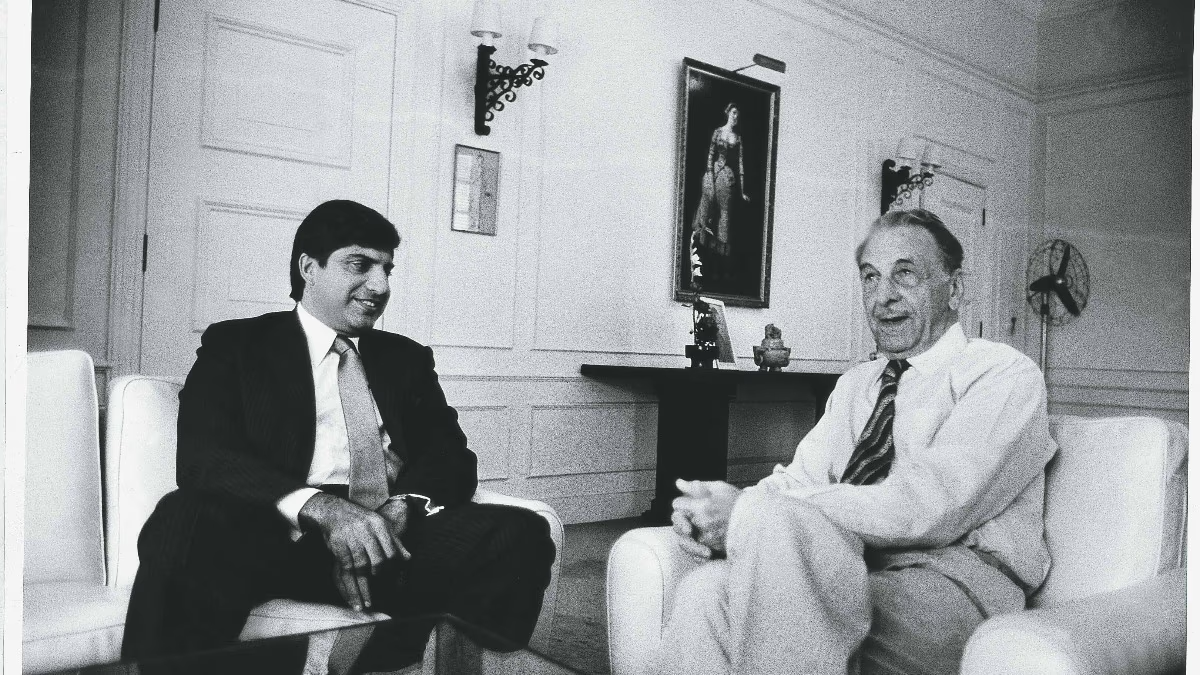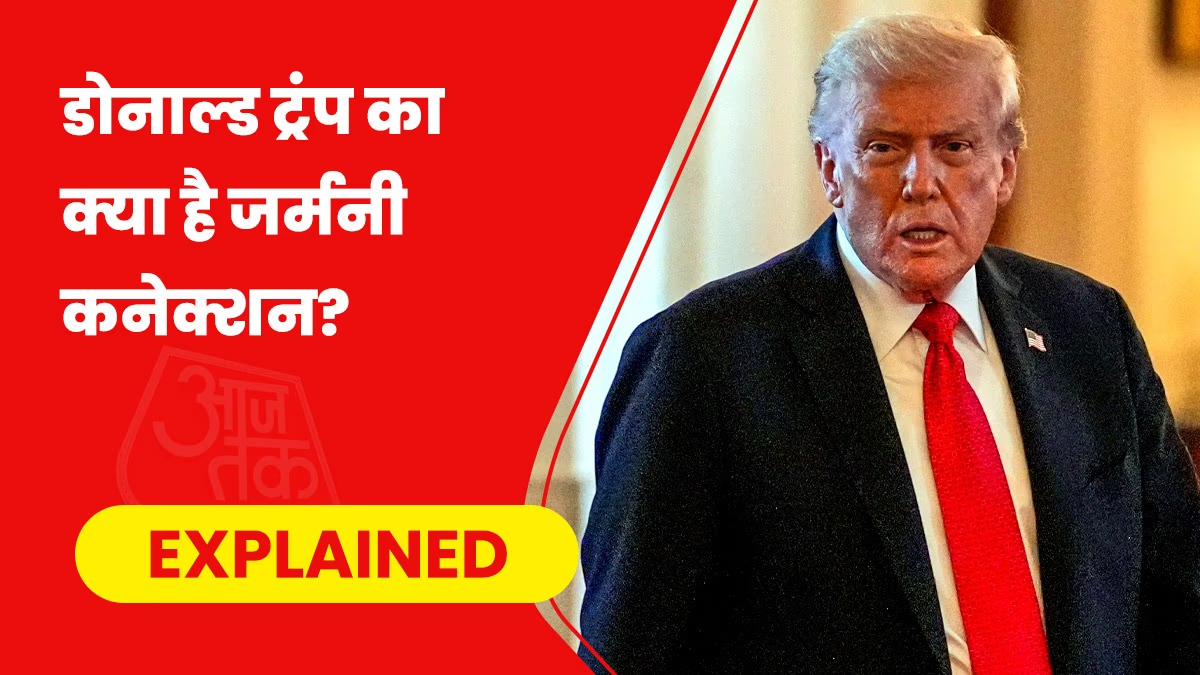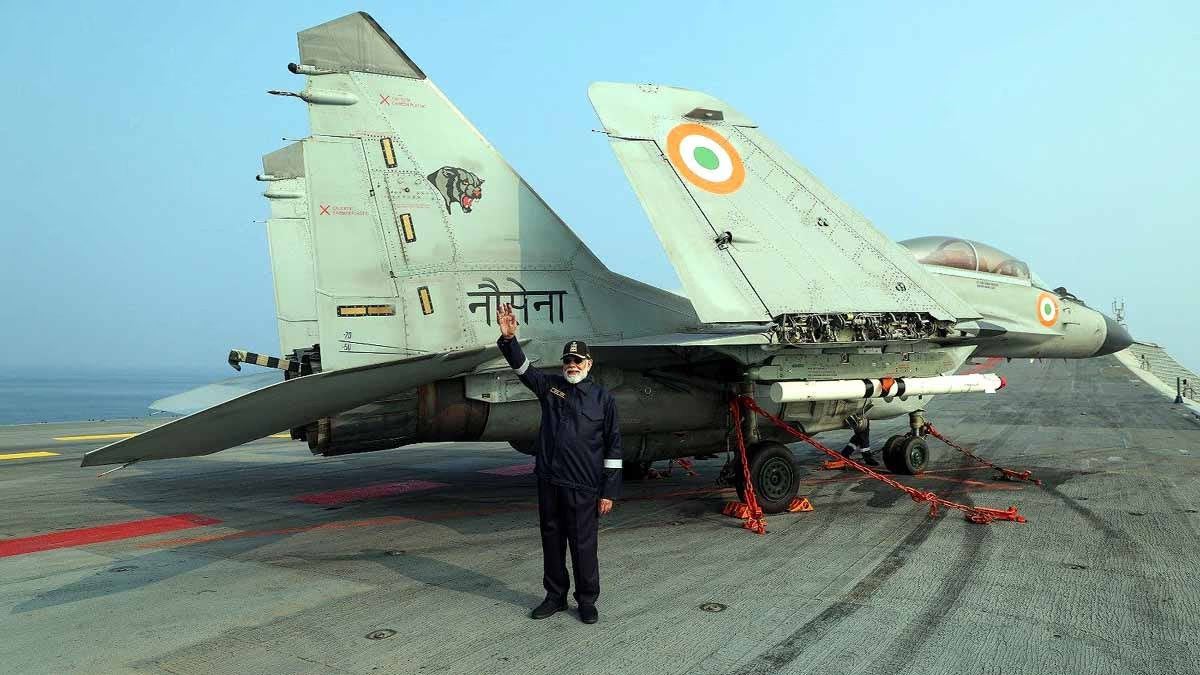Whenever Ratan Tata met JRD Tata, JRD would begin the conversation with, "Well... what's new?" Ratan would then share updates about the company and industry. This story stems from one such meeting. Before starting his work for the day, Ratan Tata went to meet JRD, or Jehangir Ratanji Dadabhoy Tata, the founder of Tata Motors, during his tenure as the chairman of the Tata Group.
On this particular occasion, as usual, JRD asked Ratan Tata, "Well... what's new?" Ratan, who referred to his mentor and boss as Jay, replied, "Jay, I've been meeting you every day, yet nothing new has happened since we last met." JRD then replied, "Well, I have something new."
What JRD shared next sent ripples throughout what would become modern India's largest industrial empire.
Ratan Naval Tata, now aged 86 and known for transforming India from an agrarian state into a fast-paced industrial nation, was integral to this growth story alongside the Tata Group. JRD and Ratan Tata have been pivotal figures in this robust framework, acting as pillars supporting numerous industries.
After finishing his studies in Los Angeles, Ratan Tata returned to Mumbai, and within 15 days, he found himself in the small, iron-scented city of Jamshedpur in undivided Bihar, where he began his early career steps in JRD's factory.
The Tata Name Carried No Privilege
During this time, the Tata family ensured Ratan received no special treatment. In a candid interview with Simi Garewal 27 years ago, Ratan Tata shared, "Everyone was concerned that I should not receive any special treatment, so I was told to live in the apprentice hostel, and I spent six months working on the shop floor at Telco and later at Tisco."
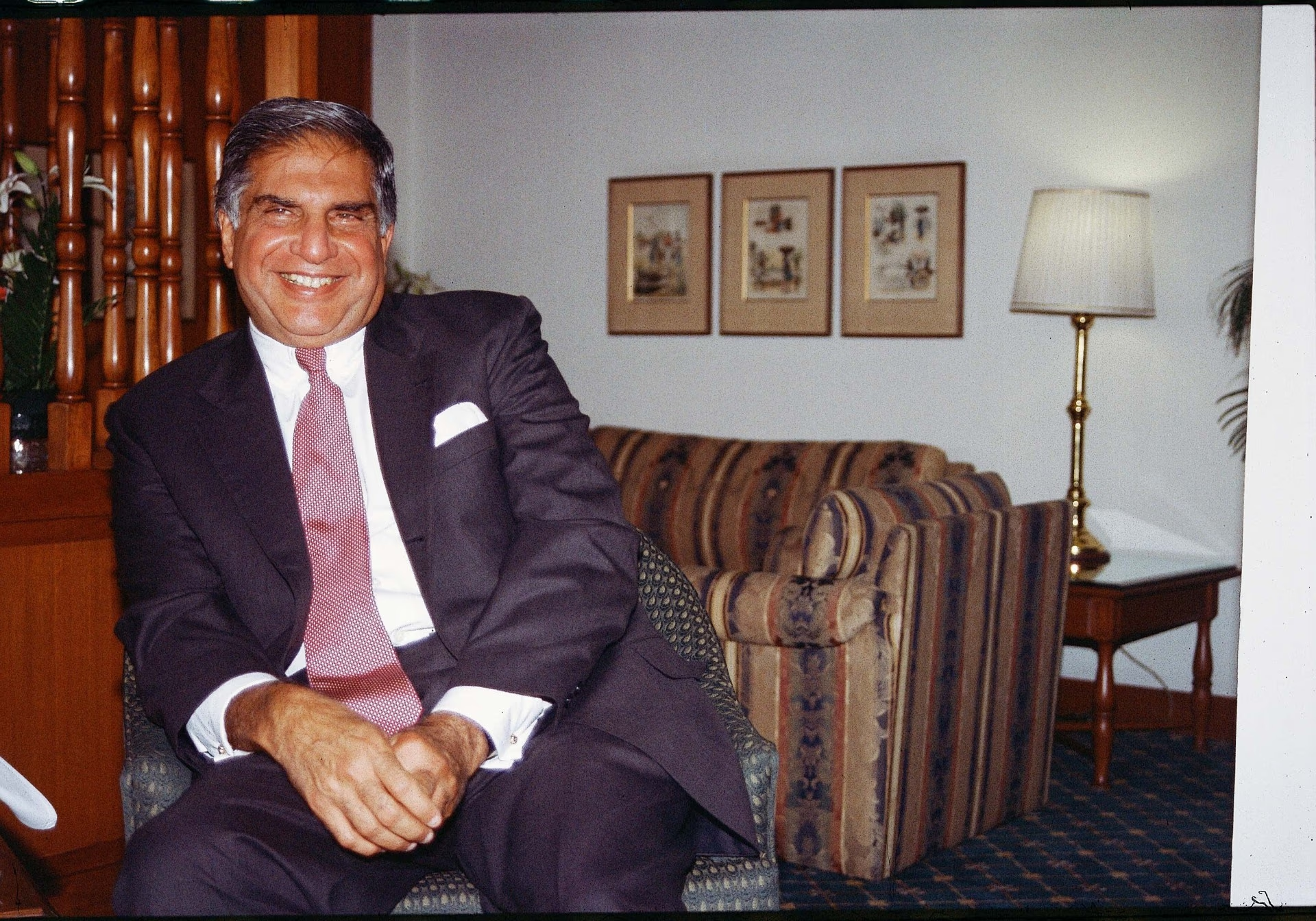
Source: aajtak
Ratan Tata managed the challenging task of handling the boiling furnace of the iron industry. He said, "I worked in many production departments, including the blast furnaces, where steel was melted and all aspects of Telco. It was particularly tough at that time, but it significantly enhanced my skills and capacities."
To the Office on a Bicycle, Not in a Car
The Tata title didn't bring any special privileges for Ratan Tata. In an interview, he revealed how the Tata name was more of a hindrance than a help. He explained, "From a person who came from Los Angeles, I was told I couldn't take a car to Jamshedpur and should move around on a bicycle...I walked to work in rebellion." It's noteworthy that Ratan was only 25 then. Despite these challenges, he considered returning but continued due to changing circumstances.
In this environment, Ratan forged into a gem in the iron and steel industry, during JRD's era as chairman. It was during this period that Ratan took charge of Nelco, revolutionizing the company.
When JRD Chose His Successor
Then came the pivotal moment when visionary and industry maestro Jehangir Ratanji Dadabhoy Tata selected his successor for his business empire. Understanding the circumstances under which JRD handed over the reins to Ratan Tata is intriguing, as Ratan himself has recounted several times.
Ratan Tata spoke about the event, "We were both in Jamshedpur, and I had to go to Stuttgart, Germany, to deal with Mercedes Benz. Upon returning, I discovered JRD had developed a heart problem and was in Breach Candy Hospital for a week."
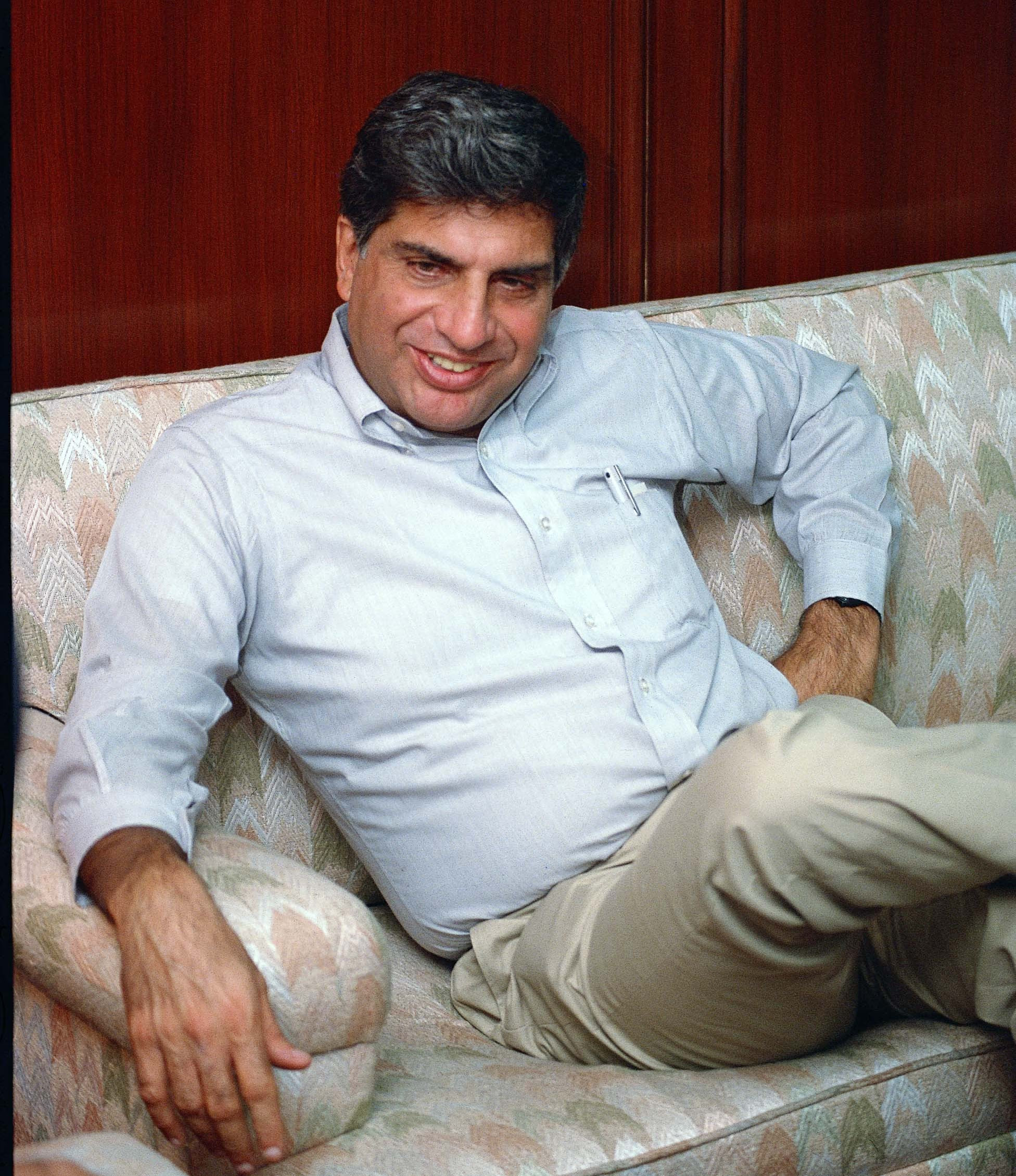
Source: aajtak
It was around 1990, and JRD was 87 years old. According to Ratan Tata, he regularly visited JRD. One Friday, JRD returned home from the hospital, and the following Monday, Ratan went to see him in the office. JRD began their meeting with his customary question, "Well... what's new?" Ratan replied that despite regular meetings, nothing new had occurred between their last encounter and now.
JRD, whom Ratan called Jay, responded, "'I have something new to tell you. Sit down.' JRD then informed Ratan, "What happened in Jamshedpur has led me to decide to relinquish the chairmanship of the Tata Group. I've decided you should take my place."
JRD brought this significant issue to the board of directors after informing Ratan.
In Simi Garewal's interview, she reminded Ratan that those present at that momentous board meeting regretted not having a camera to record the iconic transition of corporate ownership in India.
Ratan Tata described the atmosphere, "I heard many colleagues say history was made that day because JRD was relinquishing a position he held for 50 years. Leaving that role came with many emotions, and now he was passing it to someone else."
The Archive of Memories in a Board Meeting
Ratan Tata recollects how JRD meticulously reminisced about his journey with the Tata Group during this poignant meeting. Re-enacting that moment was challenging for them, as it was akin to retrieving memories from the archives. It marked the end of an era and the dawn of a new one.
After appointing Ratan Tata as the leader of the Tata Group in 1991, JRD Tata passed away in November 1993 at the age of 89.
Initially, Ratan Tata Did Not Know JRD
Ratan Tata admitted he didn't know JRD Tata during his teenage years. Although Ratan shares no direct family relation to JRD, their bond began in a unique way in Jamshedpur, fueled by their mutual passion for flying. On JRD's suggestion, Ratan established a flying club in Jamshedpur, and their connection deepened over time.
Tech Enthusiasm: Electronics, Computers, and New Technology
Ratan often found common ground with JRD on their shared interest in emerging technologies, electronics, and computers. They both experienced the thrill of discussing future challenges and opportunities.
Ratan emphasized that one of the most important lessons he learned from JRD was the "sense of justice." He has striven to uphold this value throughout his career.
